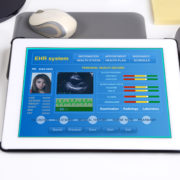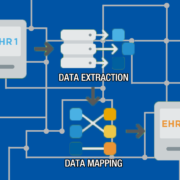Administration Tips for Using EHR Software
When it comes to electronic health record (EHR) implementation, there can be resistance among those who are impacted by the switch. For years, paper-based records were the foundation of medical offices. And while electronic records most definitely make office operations simpler, switching to them can be a headache. Fortunately, though, with proper administration training, it becomes much simpler to make the switch. For now, we will take a look at four must-know administration tips for properly using electronic health records.
1) Feedback Sessions are a Must
To ensure the most usability is obtained when implementing a new EHR system, it is imperative to provide feedback sessions. You want your administration employees to feel as if their opinions and concerns matter and you should provide a comfortable environment for them to have a voice. Feedback sessions enable your employees to make you aware of obstacles they are facing with the new EHR system. And while a hassle-free and a problem-free switch are ideal, implementing new software will undoubtedly present its own set of issues. With software support, however, the issues brought forward during feedback sessions can be appropriately addressed and resolved.
2) Training is Essential
For medical practices that are heavily paper-based, training is of the utmost importance. Even basic computer skills will need to be taught to administration employees. In medical offices that have already started taking advantage of practice management software, training will still be needed but it may not be needed on such an extensive basis. It is during the training process that employees will be shown how to scan and upload documents, attach digital files to electronic health records and more. There are several ways to take advantage of basic technology training, including local community organizations, such as libraries and vocational schools. Preferably, however, the EHR system that you choose will provide basic user training. It is during the training process that you will be able to identify who your key “super users” will be, which leads us to the next tip.
3) Key Super Users are Going to be Very Valuable
No matter how long your new EHR system has been in use, there are going to be administration employees who need help from time to time. Ideally, you will have at least two key super users who can be the go-to source for any questions these employees may have. The super users will learn the ins and outs of the system and will be able to provide shortcuts to the system’s most used functions. These super users will also be able to provide valuable training to new administration employees who are unfamiliar with the system. Super users will most likely exhibit the following traits:
- High computer literacy
- Have the ability to learn new concepts on a rapid basis
- Ability to train others
- Natural leader
4) Use Online Resources to Your Advantage
There is a huge financial toll that your practice will endure when switching to a new EHR system. If you prepare properly for this financial toll, it won’t seem as burdening as it would if you don’t prepare for it. Whether you have initiated proper preparation tactics, though, you can still take advantage of online resources to help mitigate costly training expenses. And while your super users should be able to answer most questions that your administration employees have relating to the EHR system, there will come times when your super users need answers themselves. Thankfully, there are online resources they can turn to that will provide valuable answers for free. Ideally, the vendor you purchase the system through will provide free online training.











